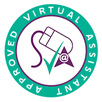|
They say that the British are a nation of complainers. So, whether you are a small business or a multinational, you’re going to have to deal with complaints. Often, these complaints are more common as your business grows and you experience periods of strain, but you need to ensure that they are handled quickly and appropriately to ensure customers are kept happy. And it’s not always easy to know where the complaints are going to come from, especially when you are starting up. So keeping a record of complaints becomes ever more important. There are many good reasons to keep a record of complaints made or any issues that have occurred. One main motive, especially when it comes to complaints, is for future reference. Either someone could come back with the same/similar complaint or the original person who first made a complaint could come back with another. If these complaints have been logged then you will know how to handle them straight away. It is also helpful if someone else takes over and will need to know how to handle complaints. They will need to know what the protocol is and how these complaints have been handled before. Business Information Management Systems Using a Business Information Management System (BIMS) can help you to log issues, complaints and problems. Certain BIMS software can also allow you to assign tasks to individual team members. With the Matrix Issue Tracker, for instance, you are able to create individual action lists and action lists arising from meetings. Some issues, problems or complaints may originate from the way the business is run. Using BIMS can help uncover any of these problems or discrepancies within your business operations, as more rigorous and consistent logging of complaints and issues will help you understand where these issues lie, and what is causing them. BIMS will then help you define procedures for quality improvement within the organisation. Being able to trend your historical performance will not only allow you to see the progress you have made but also how you have managed to achieve this. You are also able to monitor any improvements that have been tracked and quality issues that could have affected your business. Storing, reporting and selecting issue reports with ease is crucial for managerial or operational scrutiny. Support Management Systems (SMS) Another way to record complaints is to use a Support Management System. This software is usually a lot lighter than a full-on BIMS, and is used specifically for logging and tracking support calls. Not only are you able to record the call and response time, but you can also make an unlimited amount of notes for each call. It is not just one person who can be responsible for a single call. You are able to allocate a single call to multiple people. Each of these people assigned to a call can input relevant notes. If there are any expired support agreements, the system will flag them up for action. When it comes to looking up calls, with a Support Management System you can easily filter through your logged calls. This can come in useful if you have someone calling back wishing to continue with a problem. When this happens you need to find all notes from previous conversations quickly. When you start any type of business, it is not always easy to know where the complaints are going to come from. Therefore, the best preparation you can make is to ensure you have the procedures and processes in place to log complaints, respond to them, and learn from them. You’ll need a policy so that everyone who is customer-facing knows what to do and how to act. A business with a consistent approach to complaint handling is one that will know how to reduce complaints over time. Author BioRebecca is a junior digital marketing executive for CLD and has produced a range of business-related articles particularly about business management systems.
Comments are closed.
|
AuthorCategories
All
Archives
May 2023
|



 RSS Feed
RSS Feed


